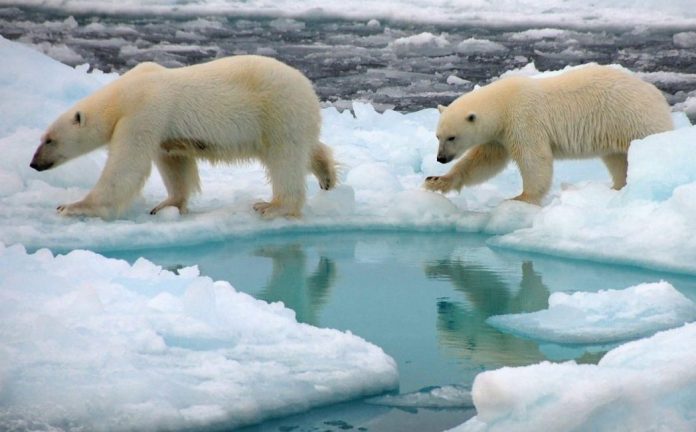The Arctic Ocean in summer will very likely be ice free before 2050, at least temporally. The efficacy of climate-protection measures will determine how often and for how long. These are the results of a new research study involving 21 research institutes from around the world, coordinated by Dirk Notz from the University of Hamburg, Germany.
The research team has analyzed recent results from 40 different climate models. Using these models, the researchers considered the future evolution of Arctic sea-ice cover in a scenario with high future CO2 emissions and little climate protection. As expected, Arctic sea ice disappeared quickly in summer in these simulations. However, the new study finds that Arctic summer sea ice also disappears occasionally if CO2 emissions are rapidly reduced.
“If we reduce global emissions rapidly and substantially, and thus keep global warming below 2 °C relative to preindustrial levels, Arctic sea ice will nevertheless likely disappear occasionally in summer even before 2050. This really surprised us” said Dirk Notz, who leads the sea-ice research group at University of Hamburg, Germany.
Currently, the North Pole is covered by sea ice year round. Each summer, the area of the sea ice cover decreases, in winter it grows again. In response to ongoing global warming, the overall area of the Arctic Ocean that is covered by sea ice has rapidly been reduced over the past few decades. This substantially affects the Arctic ecosystem and climate: The sea-ice cover is a hunting ground and habitat for polar bears and seals, and keeps the Arctic cool by reflecting sunlight.
How often the Arctic will lose its sea-ice cover in the future critically depends on future CO2 emissions, the study shows. If emissions are reduced rapidly, ice-free years only occur occasionally. With higher emissions, the Arctic Ocean will become ice free in most years. Hence, humans still have an impact on how often the Arctic loses its year-round sea-ice cover.















